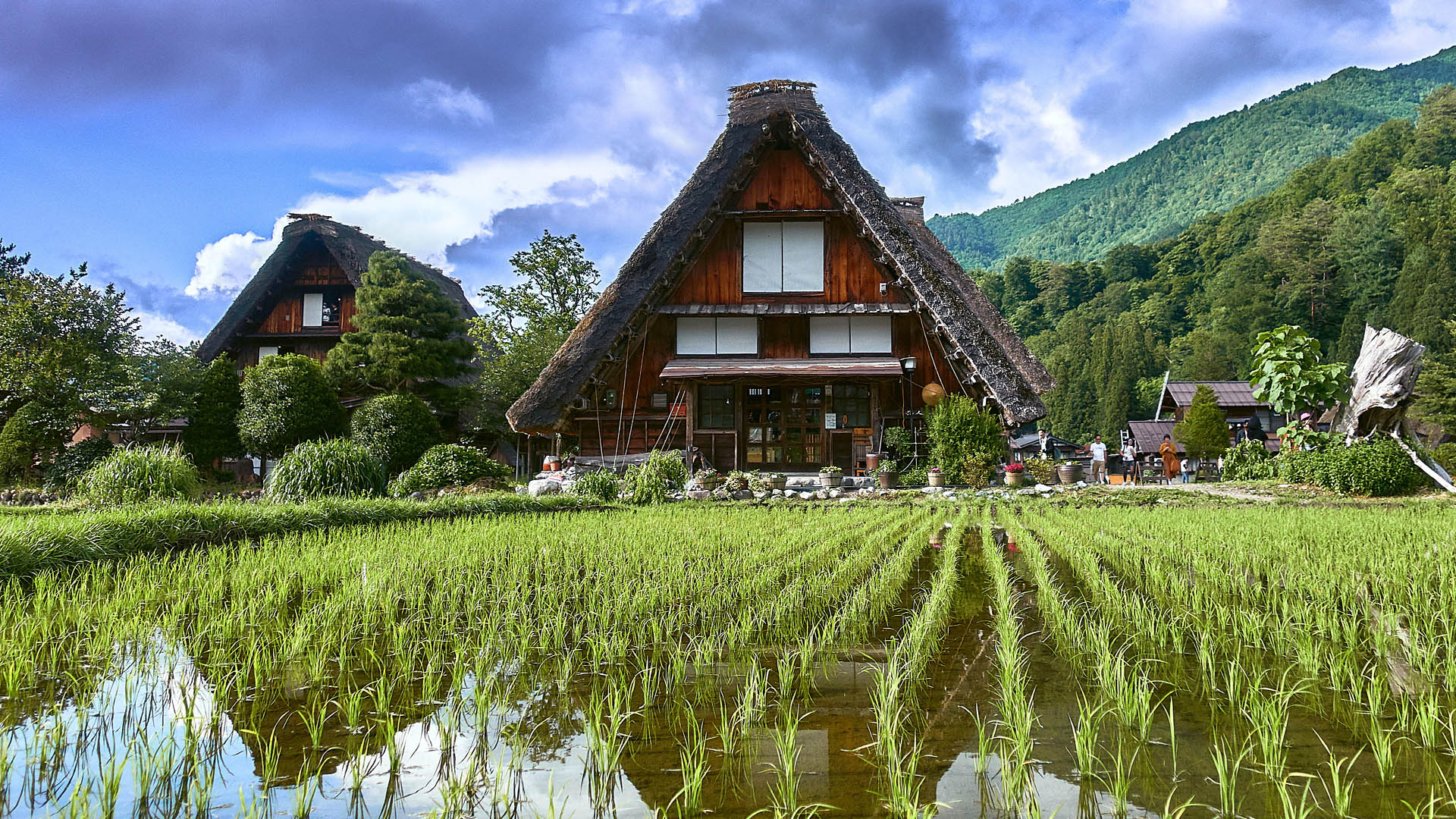For decades, the vibrant, catchy tunes of the Village People have filled dance floors and brought smiles to faces worldwide. We’ve all, you know, swung our arms to "Y.M.C.A." and probably wondered about the group's origins. There's a widely held belief, a common idea, that the Village People were, in a way, entirely gay. It's a question many people ask, and the answer, quite frankly, might just surprise you a little bit.
Many folks think that every single member of this famous disco group was gay. This perception has, over time, become almost universal. However, the real story behind these "macho, macho men" is a bit more nuanced, a bit more layered than what most people assume. It’s actually quite fascinating when you look at it closely.
In this blog post, we will really get into the history of the Village People, exploring their beginnings, the people who made up the group, and how they came to be so closely connected with gay culture. We’ll uncover the facts, clear up some common misunderstandings, and shed some light on their lasting impact. So, let’s explore the true story of this legendary band, shall we?
- Tips For Mastering Who Is Preston J Cook Meet Julia For Exceptional Content Creation
- Fogo De Chao Paramus
- Rajwinder Singh The Man Behind Toyah Cordingleys Tragic Murder
- When To Use Screenshots In Lapse Reporting
- Everything You Need To Know About Chrissy
Table of Contents
- The Roots of the Village People
- Who Were the Village People Members?
- The Members and Their Identities
- The "Y.M.C.A." Anthem: A Closer Look
- A Cultural Touchstone and Its Evolving Relevance
- Frequently Asked Questions About the Village People
The Roots of the Village People
The story of the Village People, you see, begins in a very specific place and time. They came together in New York City, in the thriving, underground gay club scene of the 1970s. This was a period of significant change and expression, especially within the city's LGBTQ+ community. The group’s very name, quite tellingly, refers to Manhattan's Greenwich Village, a spot well-known for its reputation as a "gayborhood." It was, in some respects, a central hub for gay life.
The answer to "are the Village People gay" begins with their very foundation. The group was, in fact, created and put together with the clear intention to appeal to the gay community. This was a pretty bold move for the time. In an era where LGBTQ+ representation was, quite frankly, very scarce, the Village People offered something truly unprecedented. They brought a playful, unapologetic celebration of masculinity that, you know, resonated very deeply with gay audiences. They became, for many, a flagship group of the gay movement of the 70s.
Who Were the Village People Members?
The Village People, as most people remember them, consisted of six members. Each of these individuals, you see, personified a popular gay archetype. There was the construction worker, the cowboy, the police officer, the Native American chief, the biker, and the G.I. soldier. These distinct characters were, arguably, part of their immediate appeal and made them instantly recognizable.
- Big Cedar Lodge Missouri
- University Of North Carolina Greensboro
- Unveiling The Truth Ke Ajia Williams Obituary Cause And Its Impact
- Unveiling Morgan Chesky Entrepreneur Visionary And Philanthropist
- Kill Six Billion Demons
These archetypal masculine characters stormed the music charts in the 70s. They have had us all doing the "Y.M.C.A." dance for decades, and that's just a little bit incredible when you think about it. Their image was, in a way, just as important as their music, creating a visual spectacle that audiences loved.
Village People Original Members at a Glance
| Character | Original Member | Known Identity (as per text) |
|---|---|---|
| Construction Worker | David Hodo | |
| Cowboy | Randy Jones | |
| Police Officer | Victor Willis | Heterosexual |
| Native American | Felipe Rose | Gay |
| Biker | Glenn Hughes | |
| G.I. Soldier | Alex Briley |
The Members and Their Identities
Despite their very strong association with gay culture, it’s important to understand that not all of the Village People were, in fact, gay. This is a common misunderstanding that has persisted for years. There is, as a matter of fact, a widespread misconception that every single member was homosexual. However, the truth is a bit more nuanced than that.
In reality, only a couple of members of the original group identified as gay. For example, Felipe Rose, who famously played the Native American character, was openly gay. It's also known that Henri Belolo and Jacques Morali, the group's founders and producers, were instrumental in its creation. Morali, who was gay, sadly passed away from complications from AIDS in 1991. So, too, it's almost, the creative force behind the group had a deep connection to the community they aimed to entertain.
Victor Willis, the disco band’s founding member and original lead singer, is a particularly interesting case. He played the police officer character, and surprisingly, he is heterosexual. Yes, you read that correctly. In the decades since the Village People rose to fame, Willis has spoken out about this. He has always, you know, downplayed the gay references in the lyrics, claiming they are universal themes that anyone can relate to. During the group's heyday, Willis was married to Phylicia Ayers, which, in a way, further highlights his personal identity.
So, while many of the original members of the Village People were indeed gay, apart from Willis and Belolo, it wasn't everyone. This really shows that the group's appeal and its connection to the gay community were about more than just the individual sexual orientations of every performer. It was, arguably, about the overall message and the cultural space they occupied.
The "Y.M.C.A." Anthem: A Closer Look
The song "Y.M.C.A." is, without a doubt, the Village People’s most recognized hit. It has become a global phenomenon, played at sporting events, parties, and celebrations everywhere. Many people, quite naturally, assume it was always meant to be a gay anthem. However, according to Victor Willis, the very man who wrote the lyrics for it, that was not its original intent. He has, you know, always maintained that the song's themes are universal.
Willis claims the song is simply about the Young Men's Christian Association, a place where young men could find community, support, and activities. He suggests the lyrics speak to camaraderie and friendship, themes that can resonate with anyone, regardless of their identity. This perspective, while perhaps surprising to some, offers a different way to think about the song’s meaning. It's a bit of a contrast to its widespread interpretation.
Despite Willis's intentions, the song has, for nearly 50 years, been strongly associated with gay culture. It became, in a way, an unofficial anthem for the LGBTQ+ community, especially during the disco era. This shows how a piece of art can take on a life of its own, with its meaning evolving based on how audiences receive and interpret it. The cultural impact of "Y.M.C.A." really goes beyond the songwriter's initial vision.
A Cultural Touchstone and Its Evolving Relevance
The Village People, as we’ve discussed, became a really significant group for the gay movement of the 70s. They offered a playful, very visible representation that was, in some respects, groundbreaking. Their music and their image provided a sense of pride and celebration for many in the LGBTQ+ community during a time when such open expression was still, you know, quite challenging. They were, arguably, pioneers in popular culture.
For nearly five decades, when most people thought of the Village People, they truly thought of gay culture. This strong association has been a defining part of their legacy. However, their relevance has, over time, taken on new dimensions. Now, the band seems to be mostly relevant due to the use of its songs by upcoming artists and at various public events, sometimes in surprising contexts.
For instance, to many fans’ surprise and even dismay, the iconic and (formerly) very gay band, the Village People, performed their most recognized (not) gay hit, “Y.M.C.A.,” at multiple inauguration events. This particular performance, whether the memory is real or a bit of a simulacrum, strikes many as quite hilarious given what the Village People are universally known for. It’s a moment that, you know, really highlights how their music can be reinterpreted or used in unexpected ways.
The Village People are, in a very real sense, part of New York City history. They were formed by people from the Big Apple's thriving, underground gay club scene of the 1970s. Their music and their image have left an indelible mark on popular culture, transcending their original context. To learn more about the group's beginnings and their place in music history, you can explore resources like historical music archives. You might also want to Learn more about the group's beginnings on our site, or perhaps explore other iconic acts from the disco era.
Frequently Asked Questions About the Village People
Was the Village People created specifically for the gay community?
Yes, the group was founded and created with the clear intent to appeal to the gay community. Their name itself refers to Manhattan's Greenwich Village, which had a reputation as a gayborhood. This connection was, you know, central to their very identity from the start.
Were all the original members of the Village People gay?
No, despite the widespread misconception, not all of the original Village People members were gay. In fact, only two members of the original group identified as gay, including Felipe Rose, who played the Indian character. Victor Willis, the lead singer, is heterosexual.
Did "Y.M.C.A." start out as a gay anthem?
According to Victor Willis, the man who wrote the lyrics, "Y.M.C.A." was never meant to be a gay anthem. He claims the lyrics are about universal themes of camaraderie and finding community. However, the song has, in a way, been widely adopted and interpreted as a gay anthem over the decades.
Related Resources:



Detail Author:
- Name : Marquis Crist
- Username : dreichert
- Email : reynold41@carter.com
- Birthdate : 1979-12-24
- Address : 73239 Kelley Isle Apt. 958 Dietrichstad, SD 54343
- Phone : 901-686-3408
- Company : Wuckert, Block and Rogahn
- Job : Artist
- Bio : Neque molestias vel qui ut ex alias est. Sunt dolor doloribus aut illum rerum dolor. Dolorum voluptate in suscipit. Sed quo ullam suscipit exercitationem repellat qui.
Socials
facebook:
- url : https://facebook.com/mfisher
- username : mfisher
- bio : Natus fugiat quia sint. Voluptas doloribus culpa molestiae et et enim.
- followers : 5851
- following : 547
linkedin:
- url : https://linkedin.com/in/marian5104
- username : marian5104
- bio : Quo qui dolor qui.
- followers : 807
- following : 2083
twitter:
- url : https://twitter.com/fisher1986
- username : fisher1986
- bio : Itaque cumque et et sunt natus enim. Inventore voluptatibus illum facere minus. Molestias quasi vero error eveniet dolorem.
- followers : 3279
- following : 1823